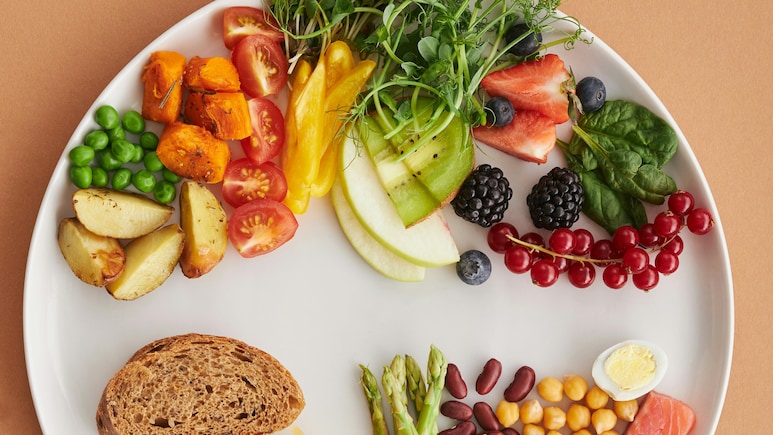
We live in an era when “healthy” is a stamp you can put on a bottle, a bowl or a plate and immediately assume all's well. Often the focus is on what foods are good for us or bad. The conversation rarely ever expands on how exactly should these foods be consumed. But as many clinicians and nutrition scientists warn, how we prepare and combine healthy foods often changes their benefits and sometimes creates risks. Here's a realist's guide to common healthy foods and the mistakes people make with them.
Are you eating these healthy foods the wrong way?
1. Spinach in green juices
Spinach is a superstar for vitamins and iron, but juicing it concentrates soluble oxalates which are compounds that can bind calcium and raise the risk of kidney-stone formation when consumed in large amounts. Home juicing that removes fibre but retains soluble oxalate can deliver a sizeable oxalate dose per glass. There are also nitrate considerations when you drink large volumes of concentrated leafy-green juice.
2. Crucifers eaten raw by the bucketful
Cruciferous vegetables such as kale, cabbage, bok choy, mustard greens, etc. contain substances that can interfere with thyroid hormone production in very high amounts, especially if you have low iodine to begin with. Cooking reduces the goitrogenic compounds; the takeaway is balance, not banishment.
3. Overcooking or burning healthy oils and veggies
Some nutrients (like vitamin C and some polyphenols) are heat-sensitive and degrade with prolonged cooking; other beneficial compounds in crucifers depend on a short gentle cook to form. Conversely, repeatedly heating oils above smoke point may generate unwanted oxidation products. Use a mix of raw (salads), lightly steamed and gently cooked vegetables to preserve both safety and nutrition.
4. Turmeric without the delivery system
Turmeric contains curcumin, a molecule with promising anti-inflammatory effects — but curcumin has very poor innate bioavailability. Eating turmeric as a pinch in dal will give you some benefits, but to reach therapeutic levels researchers use special formulations or add piperine (black pepper) and fat to increase absorption. Don't expect food-level turmeric to behave like a clinical supplement.
5. Green tea (and matcha) with an iron-poor meal
Green tea and matcha contain polyphenols that inhibit non-heme iron absorption (the type of iron in plant foods). If you're vegetarian, peri-menopausal or marginally iron deficient, drinking strong tea with your main meals can worsen iron status. Sip tea between meals instead.
6. Raw sprouts
Sprouts (alfalfa, mung, bean) are grown in warm, humid conditions that are also ideal for bacteria like Salmonella and E. coli. Outbreak investigations remind us that sprouts are a recurring food-safety problem; vulnerable people should avoid raw sprouts.
7. Under-cooked or raw kidney beans
Raw or undercooked red kidney beans contain phytohaemagglutinin (a lectin) that can cause severe nausea, vomiting and diarrhoea within hours of ingestion. Proper soaking and thorough cooking destroy the toxin. Pressure-cooking or boiling well is essential.
8. Smoothies and fruit juices
“Liquid fruit” often removes fibre and concentrates free sugars. Even 100% fruit juice can raise blood sugar faster than whole fruit and contributes to dental caries when sipped frequently. For children and people managing weight or diabetes, whole fruit and controlled portion sizes are the safer option.
9. Raw egg whites in protein shakes
Raw egg whites contain avidin, a protein that binds biotin (vitamin B7) and can reduce its absorption if consumed regularly in large amounts; raw eggs also carry a small but real Salmonella risk. Cooked eggs in your omelette or protein pancake inactivate avidin and are safer.
Healthy food isn't automatically trouble-free; the devil often lives in the details like portion, preparation, pairing and the person eating it. A spinach shot won't harm most people occasionally, but repeated poor choices add up.
Disclaimer: This content including advice provides generic information only. It is in no way a substitute for a qualified medical opinion. Always consult a specialist or your doctor for more information. NDTV does not claim responsibility for this information.
References
Oxalate in Foods: Extraction Conditions, Analytical Methods and Health Implications. NCBI, 2024.
Do Brassica Vegetables Affect Thyroid Function? NCBI, 2024.
Recent Developments in Delivery, Bioavailability, Absorption and Metabolism of Curcumin. NCBI, 2014.
Association between Coffee and Green Tea Consumption and Iron Absorption/Status. NCBI, 2022.
CDC Investigation Update: Salmonella outbreak, Alfalfa Sprouts. Centers for Disease Control and Prevention (CDC), 2023.
Food poisoning from raw red kidney beans. British Medical Journal archive, 1980s/1990s (classic reports).
Review of 100% Fruit Juice and Chronic Health Conditions. NCBI, 2018.
Biotin Deficiency and raw egg whites. NCBI Bookshelf / StatPearls, 2022.
Track Latest News Live on NDTV.com and get news updates from India and around the world

